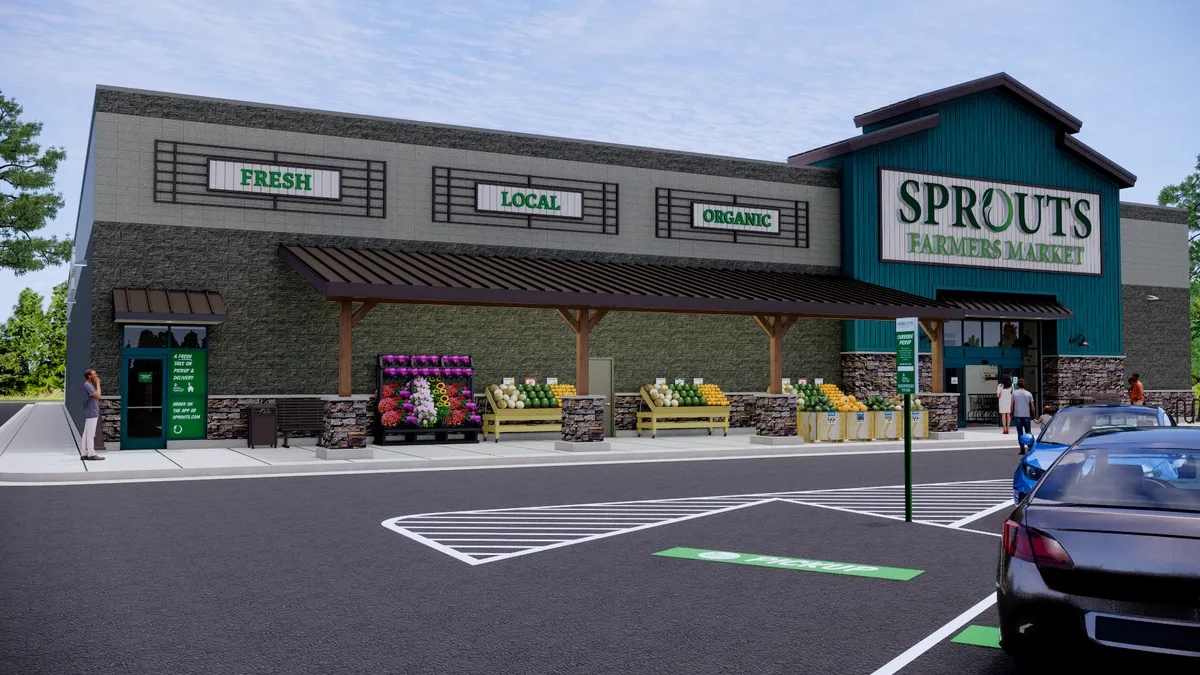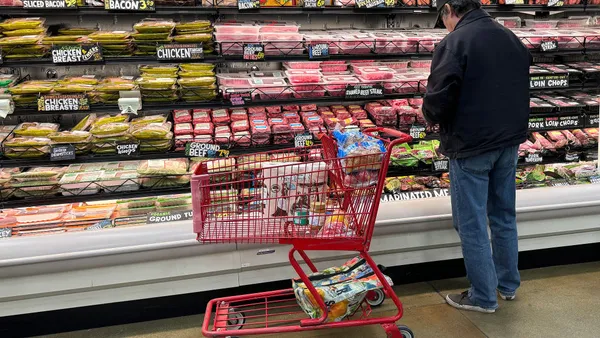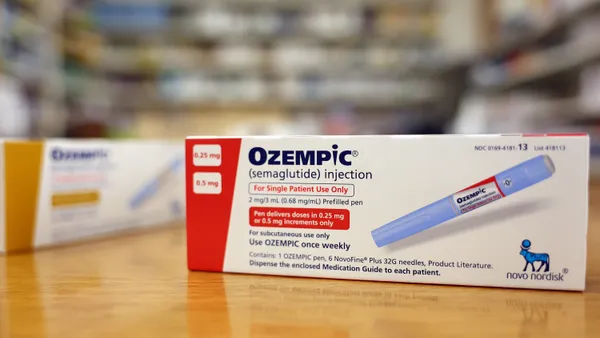Dive Brief:
- Same-store sales at Sprouts Farmers Market declined 9.4% during the first quarter of 2021 as the pandemic-induced jolt it saw last year faded, the health-focused specialty grocer reported on Thursday. Net sales in Q1 came in at $1.6 billion, 4% below the level they hit during the same period in 2020.
- E-commerce sales were up 221% in Q1, accounting for 12.5% of Sprouts' sales during the period, driven by a significant increase in January, Chief Financial Officer Denise Paulonis said during the company's earnings call.
- Like other grocers, Sprouts is urging investors to discount its year-over-year performance and look instead to the period before the pandemic began. The chain recorded identical store sales growth of 2.2% compared with the first quarter of 2019, while net sales were up 11%.
Dive Insight:
Although Sprouts saw its year-over-year financial results decline during the first quarter of 2021, the company's top executives said the company is positioned for growth during the months to come.
Sprouts is poised to capitalize on the smaller store format it has been developing, which costs 20% less to build than its current stores but are designed to have similar sales, CEO Jack Sinclair said during the earnings call.
As intended, Sprouts, which operates 362 stores in 23 states, did not open any new locations during Q1, which concluded April 4. The grocer intends to open about 20 new stores during the second half of 2021, Sinclair said.
Sinclair said the recent opening of a new distribution center in Colorado and other logistical improvements designed to save money, such as inventory management systems and the addition of self-checkout stations in stores, bode well for the company's profitability going forward. "If I'm confident about anything, I'm confident about the fact that our margin growth is sustainable," he said.
Sprouts has also made progress in its effort to reach customers with targeted online marketing, which it has made a priority during the past year, Sinclair said. The retailer's base of customers with emails — who tend to have larger baskets than other Sprouts customers — grew more than 140% during Q1, while website traffic was up 39%, according to Sinclair.
Digital sales are another area where Sprouts is seeing improvement. For example, the grocer is continuing to invest in its own e-commerce platform and saw 17% of its digital revenue come through that channel during the quarter, up from 15% during the last quarter of 2020, Paulonis said.
"As we're bringing those customers in a little closer to us, we have an opportunity to have more customer data, a more direct relationship with those customers and to monetize that a little bit more than what we can simply do when … selling through a marketplace," she said.
Sinclair predicted that e-commerce sales would settle into a range of about 8% to 10% of the company's business as the pandemic fades and people become more comfortable with shopping in its stores.
Sprouts is also encouraged by signs that customers are prepared to return to its stores, where it can showcase the fresh produce and unique items that serve as a key draw for shoppers, executives said. In a survey the grocery chain conducted, the majority of customers who reduced the number of trips they made to the company's stores or stopped going altogether to avoid COVID-19 said they plan to return when the public health crisis is over, Sinclair said.
A notable factor in the year-over-year sales decline was that vitamin sales weren't as strong as expected, which Sinclair attributed to the fact that flu cases were down during the winter, according to Sinclair. Alcohol sales, which Sinclair boomed in 2020, also slowed.










